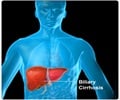New data from clinical studies provide new rationale for an old and established treatment option for portal hypertension.

The first study evaluated the effects of a non-selective beta-blocker (NSBB) on gastrointestinal permeability and bacterial translocation in patients with cirrhosis with high levels of portal hypertension.1 Patients with severe portal hypertension (HVPG* ≥20mmHg) had increased markers of gastrointestinal permeability and bacterial translocation compared to patients with lower levels of portal hypertension (HVPG<20mmHg). Treatment with NSBB significantly reduced HVPG, improved gastrointestinal permeability and decreased bacterial translocation (LPS-binding protein (LBP) -16% p=0.018; IL-6 -41% p< 0.0001) levels.
Patients who were found to have the highest levels of gastrointestinal permeability were also found to be at most risk of bleeding from oesophageal varices; a complication of cirrhosis which carries a high risk of mortality.
These findings provide a new rationale for the use of non-selective beta-blockers in patients with cirrhosis. EASL's Treasurer Prof. Mauro Bernardi commented on the data: "The movement of bacteria from the gut and into the bloodstream is extremely serious and potentially fatal in patients with cirrhosis often leading to complications or death. Beta-blockers have been successfully used in a number of conditions and as a standard treatment to control blood pressure in other disease areas. In cirrhosis, they have been used for decades for primary and secondary prophylaxis of bleeding from oesophageal varices. The results of this study show that besides improving portal hypertension, as it was thought up to now, their beneficial effects are also due to their ability to reduce bacterial translocation which may widen the indications for the use of these drugs in this setting."
In the diagnostic landscape, promising data to support the validity of non-invasive techniques were also presented at the congress. HVPG, an invasive measurement technique currently considered as the best predictor to identify progression to severe scarring of the liver and disrupted essential body functions (clinical decompensation), was compared to techniques such as the evaluation of spleen stiffness (SS) combined with the MELD** score.2
The study showed that in compensated (early) patients with cirrhosis both the SS (p<0.0001) and the MELD (p=0.016) score provided an accurate prediction of clinical decompensation, and their combination in a new score had a predicting power even superior to that of HVPG.
Disclaimer: the data referenced in this release is based on the submitted abstract. More recent data may be presented at the International Liver Congress™ 2013.
 MEDINDIA
MEDINDIA



 Email
Email





